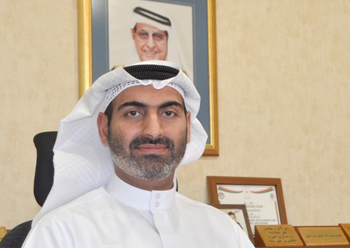Improving air quality need of the hour
ABDULRAHMAN KHANSAHEB, Managing Director of Dubai-based Khansaheb Industries, highlights the need to look more closely at indoor air quality and HVAC systems, particularly with a view to reducing particulate matter.
01 July 2020
The need for clean air is becoming even more urgent today as the world looks for ways to survive through the global Covid-19 pandemic.
We spend more than 90 per cent of our time indoors – a proportion that is higher now that most of the world is working and learning from home.
As we shelter indoors, we also expose ourselves to higher levels of household and indoor air pollution.
Academics, including researchers from Harvard, have started making links between high levels of air pollution and coronavirus mortality rates. The research, although limited, looks at fatalities from Covid-19 and historic levels of dangerous particulate matter known as PM 2.5 – an air pollutant that can penetrate the lungs, lead to reduced levels of lung capacity and cause skin and eye problems.
The research shows that air pollution is correlated with lower levels of immunity, increased susceptibility and higher chances of complications from Covid-19. Governments across the world, including the Gulf countries, have been looking closely at outdoor air pollution.
UAE leads the way
In the UAE, improving air quality has been on the government’s agenda for a long time. The country regularly monitors outdoor air in line with the UAE air quality Index (AQI) and its National Vision 2021 aims to raise its air quality to achieve 90 per cent of green days by 2021 - which the emirates are well on target for as the rate was already 76 per cent in 2016.
To meet the goal, the UAE Ministry of Climate Change and Environment is working with its public and private sector partners to improve the national standards for air pollution and compliance control.
Indoor air quality (IAQ)
While outdoor air quality is being looked at in detail, we need to look more closely at indoor air quality in the Gulf region.
Improving standards of indoor air quality is not a new issue. Sick building syndrome (SBS), a condition that is attributed to poor ventilation, has been around for several years and found most commonly among office workers. Its symptoms include headaches and respiratory problems which are attributed to the workplace environment.
However, buildings can also help fight against disease, if constructed and operated smartly.
The Dubai Municipality’s standards for indoor air quality stipulate that the air should not have more than 0.08 parts per million of formaldehyde, 300 micrograms of total volatile organic compounds (VOCs) and 150 micrograms of suspended particulates in an eight-hour window of continuous monitoring pre-occupancy.
These standards, which need to be continuously enforced in a strict manner, include stipulations for PM 2.5, given its link to Covid-19 related complications.
Khansaheb Industries recommends upgrading the standards for indoor air quality in the UAE to those recommended by the Eurovent Association – EN16798-3 Sup 2 – which calls for lower concentrations of PM in the air. This standard should be made mandatory rather than optional and can be achieved by installing advanced ventilation and ductwork systems in buildings.
How to improve IAQ
There are steps that developers and consumers can take to ensure buildings are healthy.
Developers need to look closely at their heating, ventilation and air-conditioning (HVAC) systems and choose products that contribute to healthy buildings. Ventilation systems that include Spiralite ductwork, an innovative system with advanced capabilities, can lower the concentration of particulate matter by preventing fungal and mould growth inside the building.
In addition to lowering immunity and increasing susceptibility to viruses, breathing air polluted with mould over a long period of time can lead to respiratory issues, asthma, hypersensitivity, allergies and can even negatively affect children’s mental health.
Consumers can take control and proactively ask about the indoor air quality in the buildings they plan to live and work in, especially in schools and hospitals.
Along with upgrading indoor air quality standards, Khansaheb Industries recommends establishing national rating systems whereby developers and landlords can certify that the quality of indoor air in their properties is compliant with the upgraded indoor air quality standard.
The pandemic has forced the world to examine all the issues that have led to the state we are in today.
The years ahead will look different, and we will all have to adjust to the new reality of social distancing and paying attention to air quality. Improving the quality of indoor air should be one of the first things we look at in order to create a healthier future for our communities and prevent future pandemics and epidemics.
1. https://on.ft.com/2Yrkjfy
2. https://gulfnews.com/uae/government/un-official-hails-uae-for-sustainable-initiatives-1.69618479
3. https://www.dm.gov.ae/en/Business/HealthAndPublicSafety/Documents/Technical%20Guidelines%20List/Indoor+air+quality+requirement+within+green+building+Regulations+%26+Specifications.pdf
4. https://www.sciencedaily.com/releases/2019/09/190925075731.htm
- Improving air quality need of the hour
- Awal Gulf launches ‘Pearl’ purification unit
- Carrier unveils healthy buildings programme
- Ionisation ‘proven to reduce MS2 phage’



